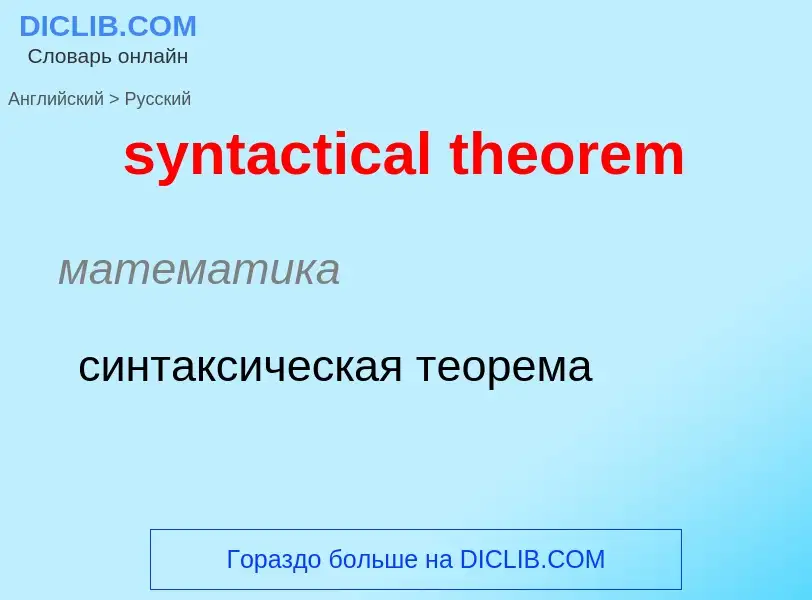Tradução e análise de palavras por inteligência artificial ChatGPT
Nesta página você pode obter uma análise detalhada de uma palavra ou frase, produzida usando a melhor tecnologia de inteligência artificial até o momento:
- como a palavra é usada
- frequência de uso
- é usado com mais frequência na fala oral ou escrita
- opções de tradução de palavras
- exemplos de uso (várias frases com tradução)
- etimologia
syntactical theorem - tradução para russo
математика
синтаксическая теорема
математика
теорема о дивергенции
теорема Гаусса-Остроградского
математика
формальная теорема
Definição
Wikipédia
In mathematical logic, Löb's theorem states that in Peano arithmetic (PA) (or any formal system including PA), for any formula P, if it is provable in PA that "if P is provable in PA then P is true", then P is provable in PA. If Prov(P) means that the formula P is provable, we may express this more formally as
- If
- then
An immediate corollary (the contrapositive) of Löb's theorem is that, if P is not provable in PA, then "if P is provable in PA, then P is true" is not provable in PA. For example, "If is provable in PA, then " is not provable in PA.
Löb's theorem is named for Martin Hugo Löb, who formulated it in 1955. It is related to Curry's paradox.





![universality]]) resembles the [[Mandelbrot set]]. universality]]) resembles the [[Mandelbrot set]].](https://commons.wikimedia.org/wiki/Special:FilePath/CollatzFractal.png?width=200)
